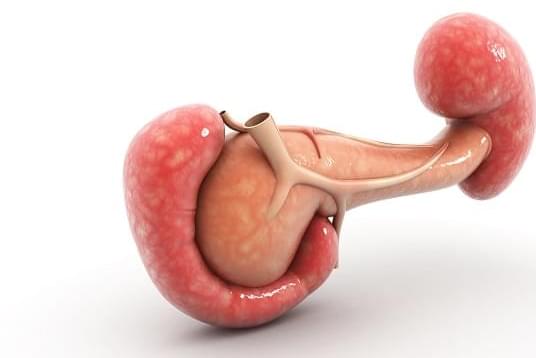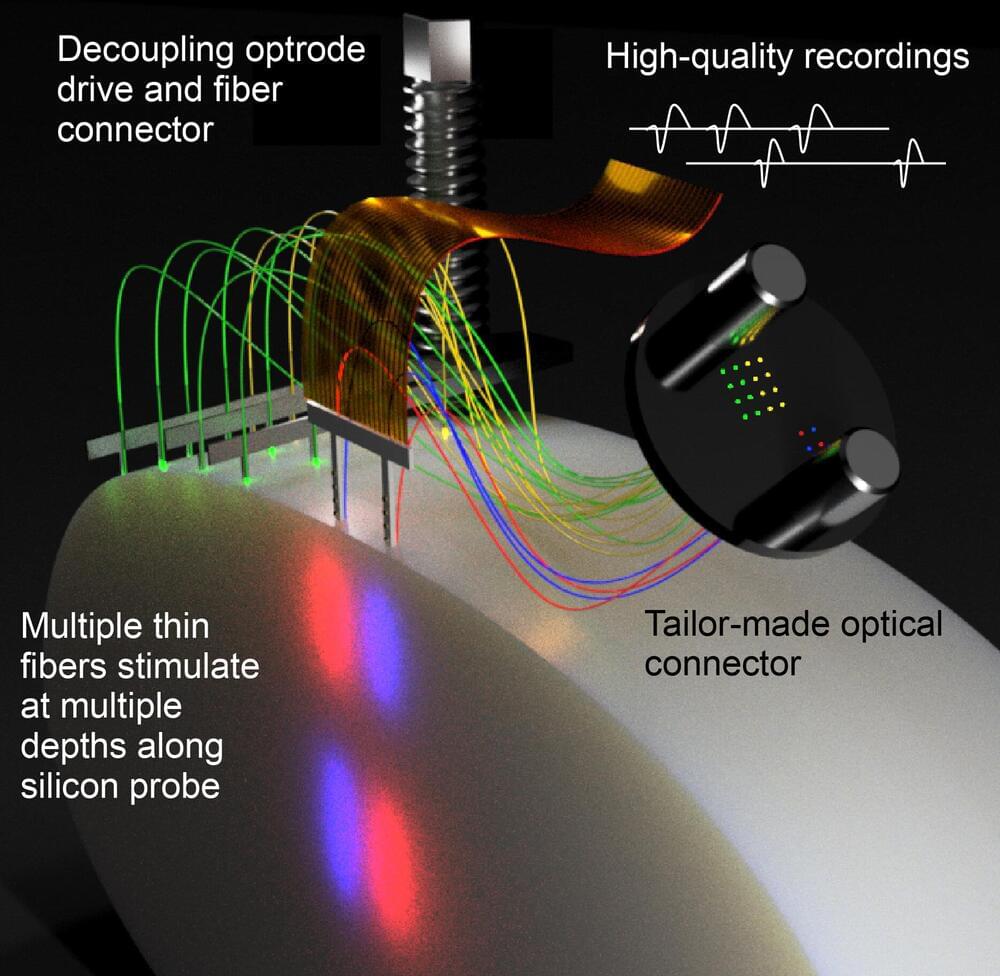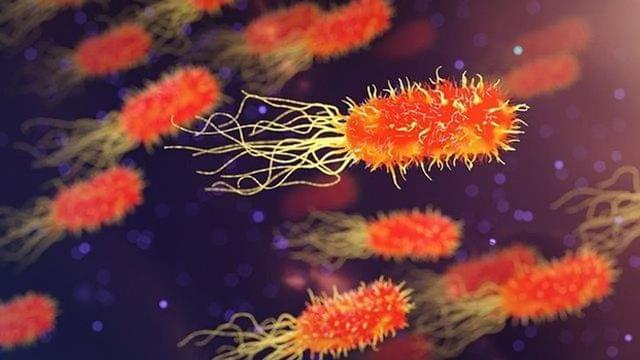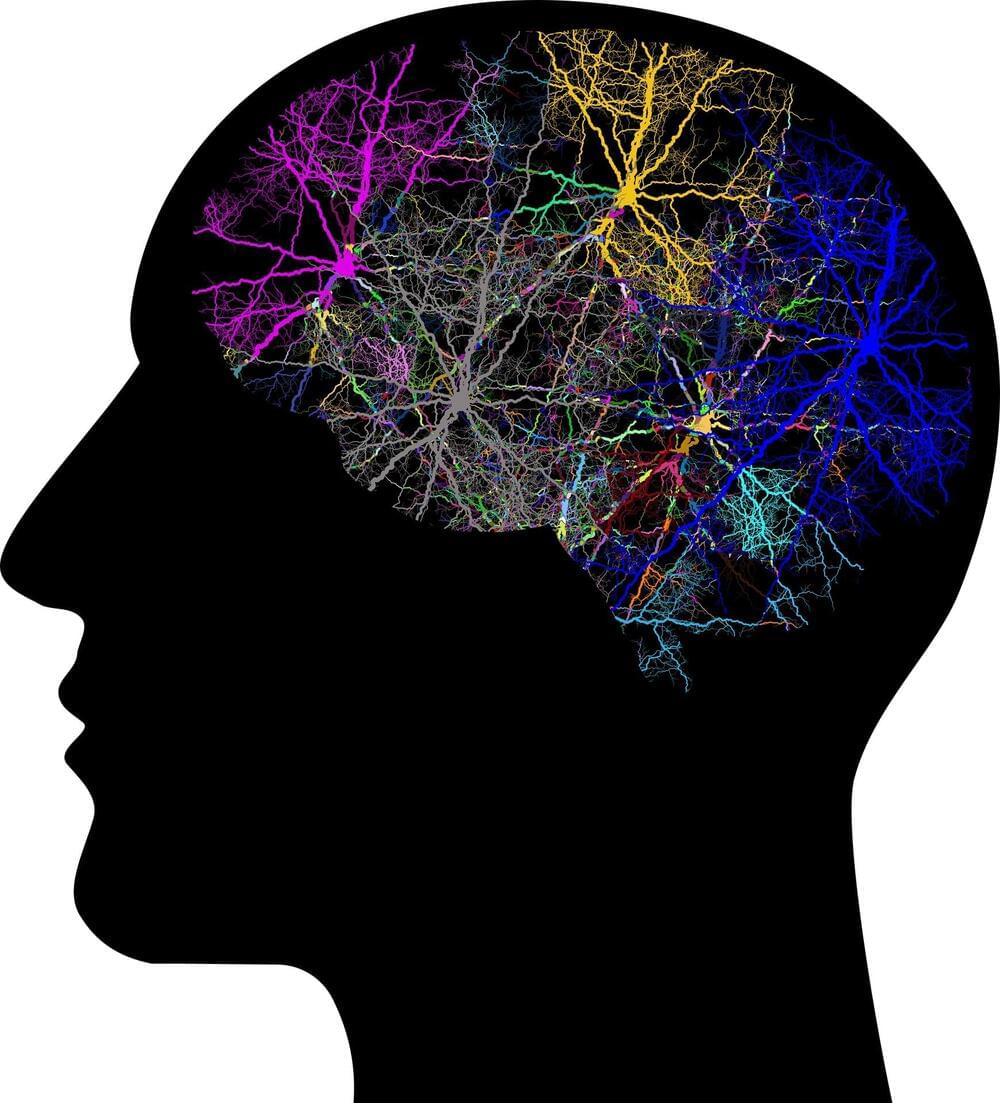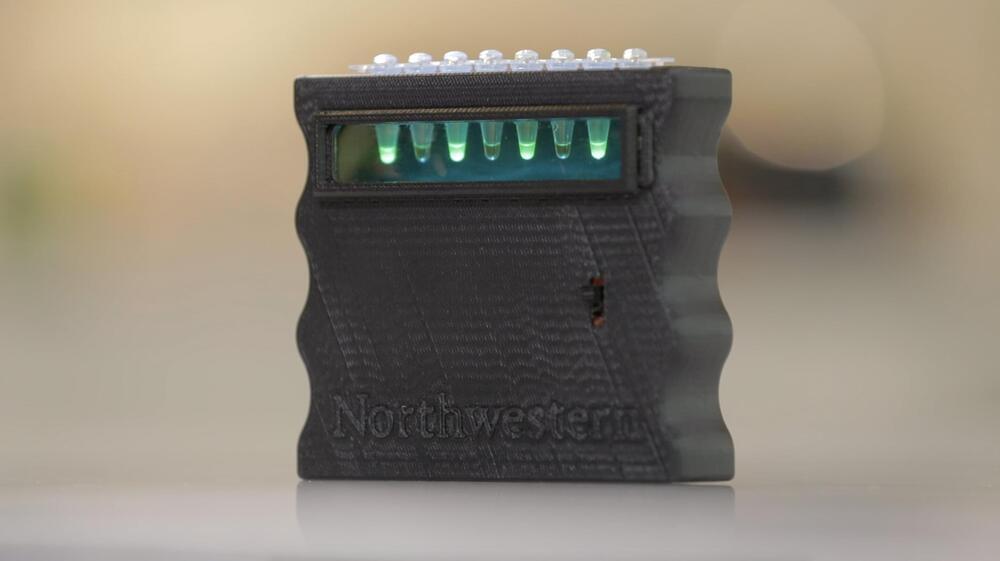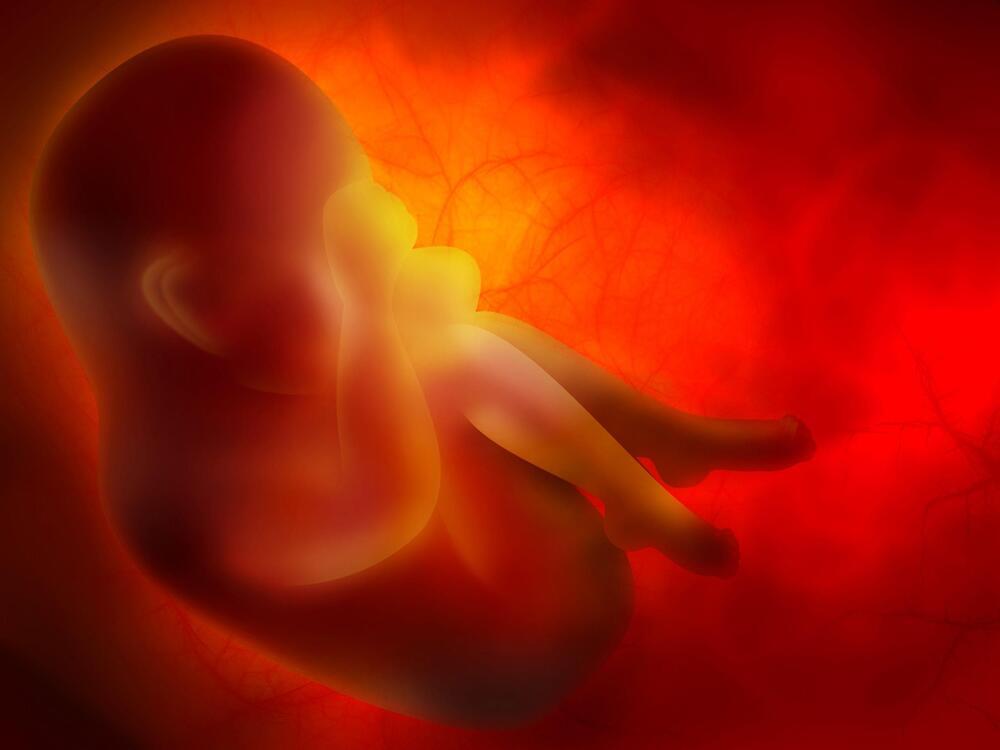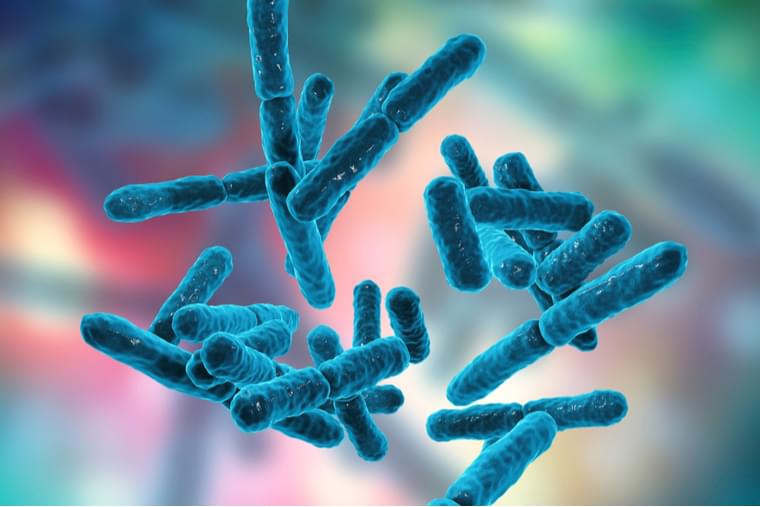Researchers from the University of Oxford’s Big Data Institute have taken a major step towards mapping the entirety of genetic relationships among humans: a single genealogy that traces the ancestry of all of us. The study has been published today in Science.
Category: genetics – Page 258
Circa 2017
AsianScientist (Feb. 8, 2017) – Mouse pancreases grown in rats generate functional, insulin-producing cells that can reverse diabetes when transplanted into mice with the disease, according to researchers at the Stanford University School of Medicine and the Institute of Medical Science at the University of Tokyo.
These findings, published in Nature, suggest that a similar technique could one day be used to generate matched, transplantable human organs in large animals like pigs or sheep.
About 76,000 people in the United States are currently waiting for an organ transplant, but organs are in short supply. Generating genetically matched human organs in large animals could relieve the shortage and release transplant recipients from the need for lifelong immunosuppression, the researchers say.
Public policy includes efforts by governmental as well as nongovernmental agencies (other than professional associations) to manage genetic enhancement. For example, the International Olympic Committee has a policy on performance-enhancing drugs in sport. In the United States, the Food and Drug Administration classified synthetic anabolic steroids as a restricted class of drugs, making it more difficult to get access to them. Such measures will not always be successful. Epoetin alfa (EPO) is a useful medication for the many people who suffer from chronic anemia, including people who must undergo regular renal dialysis. As a consequence, it is in very wide supply for legitimate therapeutic purposes, unlike the synthetic anabolic steroids. Imposing strict limitations on access to EPO would create an enormous inconvenience for the large number of people who benefit from the drug. The fact that some athletes are able to get their hands on EPO is an unintended consequence of having the drug widely available for legitimate therapeutic uses. The appropriate public policy will not be the same, necessarily, for every drug.
By “personal policy” we mean the moral understandings and social practices of individuals, parents, and families, including those moral convictions that would cause them to refrain from unwise or unfair use of genetic enhancement technologies. The Worth of a Child, for example, focuses on ethical issues involving children and parents.11 How does one engage that sort of personal policy response? The means we have are limited but powerful: education, public dialogue, and the encouragement of ethical reflection.
In conclusion, there are four points worth reiterating. First, as we think about genetic enhancement, we should use a broad definition of genetic-enhancement technologies, not merely gene manipulation, but indirect genetic technologies, such as biosynthetic drugs. Second, we should try to anticipate the enhancement temptations of new therapies. Such anticipation may help us in shaping the marketing, availability, or other aspects of those technologies. Third, we should promote the adoption of appropriate public and professional policies. Finally, we should provide public education and dialogue to encourage personal ethical reflection on the appropriate uses and limits of genetic-enhancement technologies.
In the field of optogenetics, scientists investigate the activity of neurons in the brain using light. A team led by Prof. Dr. Ilka Diester and Dr. David Eriksson from the Optophysiology Laboratory at the University of Freiburg has developed a new method to simultaneously conduct laminar recordings, multifiber stimulations, 3D optogenetic stimulation, connectivity inference, and behavioral quantification on brains. Their results are presented in Nature Communications. “Our work paves the way for large-scale photo-recording and controlled interrogation of fast neural communication in any combination of brain areas,” Diester explains. “This can help us unravel the rapid and multilayered dialogs between neurons that maintain brain function.”
The research group, in collaboration with Dr. Patrick Ruther of the Department of Microsystems Engineering (IMTEK) at the University of Freiburg, is developing a new method for the controlled interrogation and recording of neuronal activity in the brain. To do this, the team is taking advantage of thin, cell-sized optical fibers for minimally invasive optogenetic implantation. “We combine side-emitting fibers with silicon probes to achieve high-quality recordings and ultrafast, multichannel optogenetic control.”
They call the system Fused Fiber Light Emission and eXtracellular Recording, or FFLEXR. In addition to optical fibers that can be attached to any silicon probe, the team uses linear depth-resolved stimulation, a lightweight fiber matrix connector, a flexible multifiber ribbon cable, an optical commutator for efficient multichannel stimulation, a general-purpose patch cable, and an algorithm to manage the photovoltaic response.
Tae Seok Moon, associate professor of energy, environmental and chemical engineering at the McKelvey School of Engineering at Washington University in St. Louis, has taken a big step forward in his quest to design a modular, genetically engineered kill switch that integrates into any genetically engineered microbe, causing it to self-destruct under certain defined conditions.
His research was published Feb. 3 in the journal Nature Communications.
Moon’s lab understands microbes in a way that only engineers would, as systems made up of sensors, circuits and actuators. These are the components that allow microbes to sense the world around them, interpret it and then act on the interpretation.
For something so small, neurons can be quite complex—not only because there are billions of them in a brain, but because their function can be influenced by many factors, like their shape and genetic makeup.
A research team led by Daifeng Wang, a Waisman Center professor of biostatistics and medical informatics and computer sciences at the University of Wisconsin–Madison, is adapting machine learning and artificial intelligence techniques to better understand how a variety of traits together affect the way neurons work and behave.
Called manifold learning, the approach may help researchers better understand and even predict brain disorders by looking at specific neuronal properties. The Wang lab recently published its findings in two studies.
Northwestern University synthetic biologists have developed a low-cost, easy-to-use, hand-held device that can let users know—within mere minutes—if their water is safe to drink.
The new device works by using powerful and programmable genetic networks, which mimic electronic circuits, to perform a range of logic functions.
Among the DNA-based circuits, for example, the researchers engineered cell-free molecules into an analog-to-digital converter (ADC), a ubiquitous circuit type found in nearly all electronic devices. In the water-quality device, the ADC circuit processes an analog input (contaminants) and generates a digital output (a visual signal to inform the user).
Genetically modified are words that bother many in Western countries, but they provide for the necessities of life elsewhere.
Stephen Hawking made terrifying predictions of the future. Based on science, the late British physicists predicted several things that could happen on Earth, from the rise of powerful Artificial intelligence to fearful robots poised to destroy humankind. Hawking also spoke about how it was dangerous to search for aliens and how global warming could destroy Earth as we know it.
However, Stephen Hawking also spoke about how abrupt advances in genetic science could lead to creating a future generation of superhumans that could eventually destroy humanity as we know it.
In recently published papers, Prof. Hawking predicted that an elite class of physically altered, intellectually powerful humans could come into existence from rich people choosing to edit their existing DNA and manipulate future generations’ genetic markup.
Tae Seok Moon, associate professor of energy, environmental and chemical engineering at the McKelvey School of Engineering at Washington University in St. Louis, has taken a big step forward in his quest to design a modular, genetically engineered kill switch that integrates into any genetically engineered microbe, causing it to self-destruct under certain defined conditions.
His research was published Feb. 3 in the journal Nature Communications.

